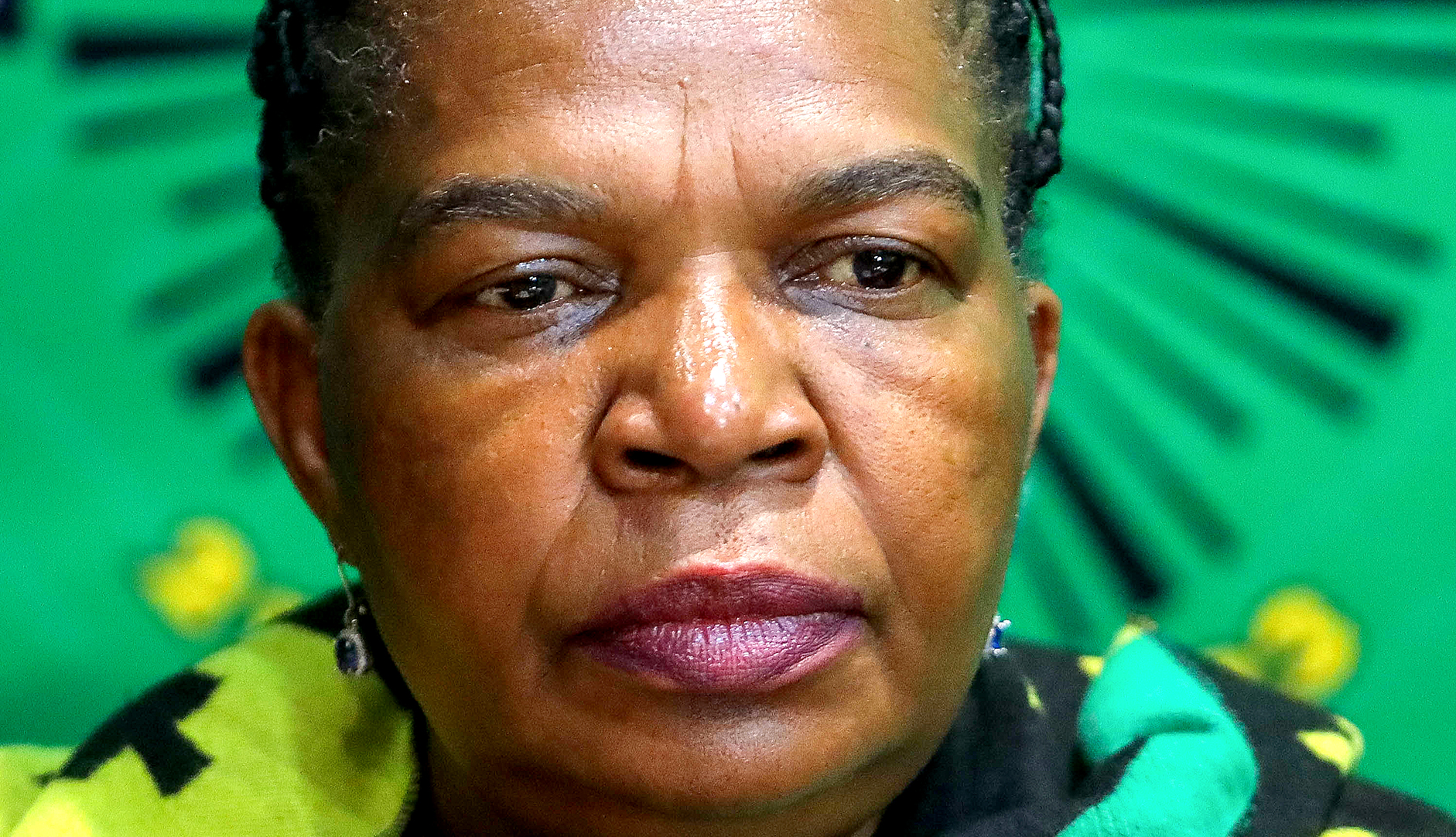On World Food Day, 16 October 2025, the South African Human Rights Commission (SAHRC), in collaboration with the Union Against Hunger, hosted a webinar on The Right to Food and Food Sovereignty in South Africa. It aimed to raise awareness and share knowledge about the challenges and opportunities in relation to the advancement of the right to “sufficient food” in South Africa, as well as highlight the importance of food sovereignty as a framework for realising the constitutional right to sufficient food.
The dialogue included voices of government, academia, civil society and communities to encourage participation in the SAHRC’s forthcoming public inquiry into hunger, the right to food and food sovereignty.
Senior legal researcher at SECTION27 Tendai Mafuma, a speaker during the webinar, said the state should proactively create an environment where people can become self-reliant to access food, or the state must supply it. Its second obligation was to protect, “which means that the state must take measures to prevent third parties from violating our rights. And we see this a lot with the right to food. That big food company, big food as a policy table, they’re contributing to what policies should be made, they’re in fact directing what policies should be made by the state in relation to how we access the food, the quality of the food that we’re having. And it’s actually an obligation on the state to regulate that so that our rights are not violated.”
Mafuma has done extensive research on health and education rights and worked on spotlighting the plight of nine million children who could not access food at school during the Covid-19 lockdown. In the webinar she explained that fixing flawed procurement processes should be one of the immediate action plans while longer-term goals, such as building community resilience to climate change, are made.
The School Nutrition Programme was “designed to at least give the most vulnerable learners in our country access to at least one meal in a day. And throughout this year there have been multiple, multiple media reports about how the procurement processes are so flawed to the extent that learners are not receiving their meals. And this is not an issue of unavailability of resources, because we know that the provincial departments are given money by the Treasury every year. So they do have the money to be able to procure this food, but they’re just so flawed in their procurement processes. They either, you know, award the tenders to people who can’t deliver or they will not pay them in time. And on the receiving end you have children who are not receiving their meals.
/file/dailymaverick/wp-content/uploads/2025/10/MC-Food-Security-1.jpg)
“So I think whilst we explore the various ways that communities can become resilient and adapt to climate change, we also need to put pressure on the government to discharge its obligation in terms of the constitution.”
One of the key speakers, Dina Pule, the National Assembly chairperson of the Portfolio Committee on Agriculture, encouraged civil society organisations to engage with the committee, and provided insights on what it would take to make a change in the hunger crisis using agriculture and land access.
A delegate from the Eastern Cape raised a concern about land being repurposed as residential, or people selling off their land because they don’t have other streams of income.
“Just to provide direction on the matter of loss of agricultural land to other uses, such as residential use, the President recently assented the Preservation and Development Agricultural Land Act in January this year, 2025. We understand that the department is currently busy with drafting the regulations, which would give effect to restraining the change of land use from food production to other uses. And the committee has been quite vocal about this,” Pule said.
Pule also acknowledged the gaps in ensuring food security and promised that the doors to communicate and table solutions to the committee would be open. She cited the recent example of some pesticides being banned following webinars, meetings and engagements with the portfolio committee, the department, communities and civil society.
Another delegate, Sibusiso Mboto, said: “We need to acknowledge that food insecurity has reached both crisis and disastrous levels and needs to be treated as an emergency. While we have the bureaucracy challenge, we have an experience of dealing with pressing matters with the 2010 Soccer World Cup as an example of how all spheres of government were able to focus on a single goal and were able to achieve it. The same should be done with the food insecurity challenge.”
/file/dailymaverick/wp-content/uploads/2025/10/GettyImages-102272924.jpg)
Mark Heywood, an activist and co-founder of the Union Against Hunger, wrapped up the webinar by highlighting the main concerns and calling for the meeting to be one of many steps to alleviate hunger and malnutrition.
“I think we’ve heard very, very important commitments from Honourable Pule, as well as from the commissioners, to advance the right to health. And I must say that as a civil society activist, it is music to my ears. And I can say with respect and politely that we will hold you to these commitments because lives and dignity depend upon them.
“We condemn hunger, we’re not doing so in abstract. Our Constitution is very strong about food.
“It says everyone, and I underline everyone, has a right of access to sufficient food and water. We haven’t talked about water today, but it’s hard to grow food and it’s hard to eat without water. So we have to connect the food and the water struggles together. The Constitution says the state must take reasonable legislative and other measures within its available resources to realise that right. And that would include reasonable measures to regulate private production of food to ensure affordability, accessibility and the safety of those foodstuffs.
“It’s clear in reflection from hearing this discussion that we need, and we want, a different food system. We’ve affirmed this idea of food sovereignty. We’ve affirmed that we want a food system that is accessible, that’s affordable, sustainable, that is good for our health, that draws from indigenous traditions and knowledge, that allows us dignity, that allows us health. And that’s what this has been about. But it’s also clear that we need urgent measures to stop hunger.”
/file/dailymaverick/wp-content/uploads/2025/10/ED_385742-3.jpg)
Heywood added that there is a mid- and long-term vision and transformation that is necessary. He listed interventions such as lowering prices of essential foodstuffs. “That would be the quickest way to reach millions of people. If the big retailers that make over R20-billion just in profit every year reduced prices on 10 essential foodstuffs, we could probably go a very long way to halt malnutrition in children.”
He also brought up a change in policy to divert surplus food and reduce food waste. “We waste one-third of food that is produced in this country, 10 million tonnes a year. The hunger crisis is a crisis that is completely preventable and completely unnecessary. But unfortunately, it is a crisis that is propped up by vested interests of the corporate food sector and also, up to now, by a lack of political will and inertia within our government to tackle this issue. So, it is going to need us to step out of this webinar and be prepared to mobilise.” DM






 One of the webinar speakers was Dina Pule, the National Assembly chairperson of the Portfolio Committee on Agriculture. (Photo: Gallo Images / Papi Morake)
One of the webinar speakers was Dina Pule, the National Assembly chairperson of the Portfolio Committee on Agriculture. (Photo: Gallo Images / Papi Morake)